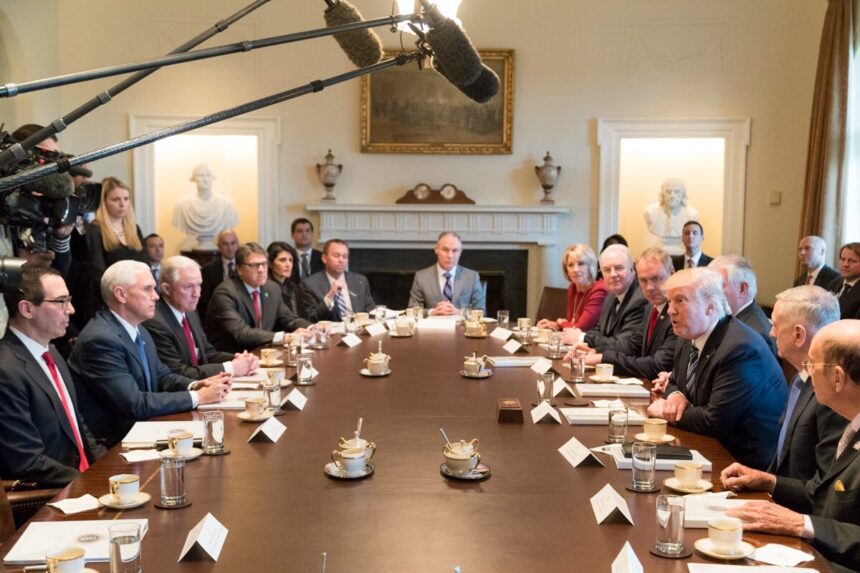A sweeping new budget bill being pushed through the U.S. Senate could leave nearly 12 million Americans without health insurance and add $3.3 trillion (£2.4tn) to the national debt, according to new projections from the Congressional Budget Office (CBO).
The findings from the non-partisan agency have cast fresh uncertainty over Republican efforts to pass President Donald Trump’s flagship legislation — the One Big Beautiful Bill Act — in the coming days.
The controversial spending plan narrowly cleared an initial hurdle in the Senate late Saturday night, with a 51-49 vote that came only after party leaders worked intensely to sway reluctant members. Notably, Senator Thom Tillis of North Carolina, one of two Republicans to vote against the bill, announced shortly afterward that he would not seek re-election.
Democrats have sharply criticized the legislation, citing the CBO’s projection of $1 trillion in healthcare funding cuts. The bill includes provisions that could significantly scale back Medicaid — a critical program for elderly, low-income, and disabled Americans — while delivering tax cuts that largely benefit the wealthy, according to critics.
Joining Tillis in opposing the measure was Senator Rand Paul of Kentucky, who cited concerns over the increase in national debt. Tillis argued that the legislation would cost his home state billions in lost healthcare funding.
The outcome of the bill remains uncertain as debate continues in the Senate. Although Republicans hold a narrow majority with 53 seats, they can afford to lose no more than three votes, relying on Vice-President JD Vance for a potential tie-breaker.
Democratic lawmakers, using Senate procedural rules, forced a 16-hour reading of the nearly 1,000-page bill to stall progress. Under current rules, 20 hours of debate are now allowed. Democrats are expected to use the full time to delay a final vote, while Republicans try to expedite the process.
Amendments may still be added to the legislation. If the Senate approves the revised version, it must then return to the House of Representatives for final approval before it can be signed into law by the president.
President Trump has called for the bill to reach his desk by his self-imposed 4 July deadline. The White House warned that failure to pass the measure would amount to the “ultimate betrayal.” In a social media post Saturday, Trump described the Senate’s procedural advancement of the bill as a “great victory.”
However, the bill’s proposed cuts to Medicaid have sparked widespread backlash. Democratic Senator Mark Warner told CNN the proposal would harm millions of Americans. “This is tax cuts for the wealthiest to end up cutting healthcare, plain and simple,” he said.
Although the bill offers tax cuts for more than 80% of Americans next year, the largest percentage gains would go to higher-income earners, according to an analysis by the non-partisan Tax Policy Center.
Republican Senator Markwayne Mullin of Oklahoma defended the legislation on NBC, stating it is designed to root out “fraud, waste, and abuse” in Medicaid. He claimed that many recipients are not actually below the poverty line. “We don’t pay people in this country to be lazy,” Mullin said. “We want to give them an opportunity. And when they’re going through a hard time, we want to give them a helping hand.”
To appease internal party dissent, Senate Republicans made several changes to the bill. While its core provisions — such as tax deductions on Social Security benefits and the elimination of taxes on overtime pay and tips — remain intact, some adjustments were made to address healthcare concerns.
One major change included increasing a rural hospital relief fund from $15 billion to $25 billion, following concerns from Republican senators about the impact of Medicaid cuts on rural healthcare providers.
The legislation also introduces new work requirements for most adult recipients to qualify for Medicaid benefits. In addition, it would limit the amount states can tax medical providers — a funding mechanism heavily used to support state-level Medicaid programs.
Another provision would impose tighter restrictions on the Supplemental Nutrition Assistance Program (SNAP), also known as food stamps, by requiring adults with children aged 14 and older to show proof of employment to qualify.
The bill also outlines a shift in funding responsibilities from the federal government to states beginning in 2028, a move that could place greater financial pressure on state budgets over time.
As debate intensifies and the July 4 deadline approaches, the fate of the One Big Beautiful Bill Act remains uncertain, with political, economic, and human stakes continuing to grow.






